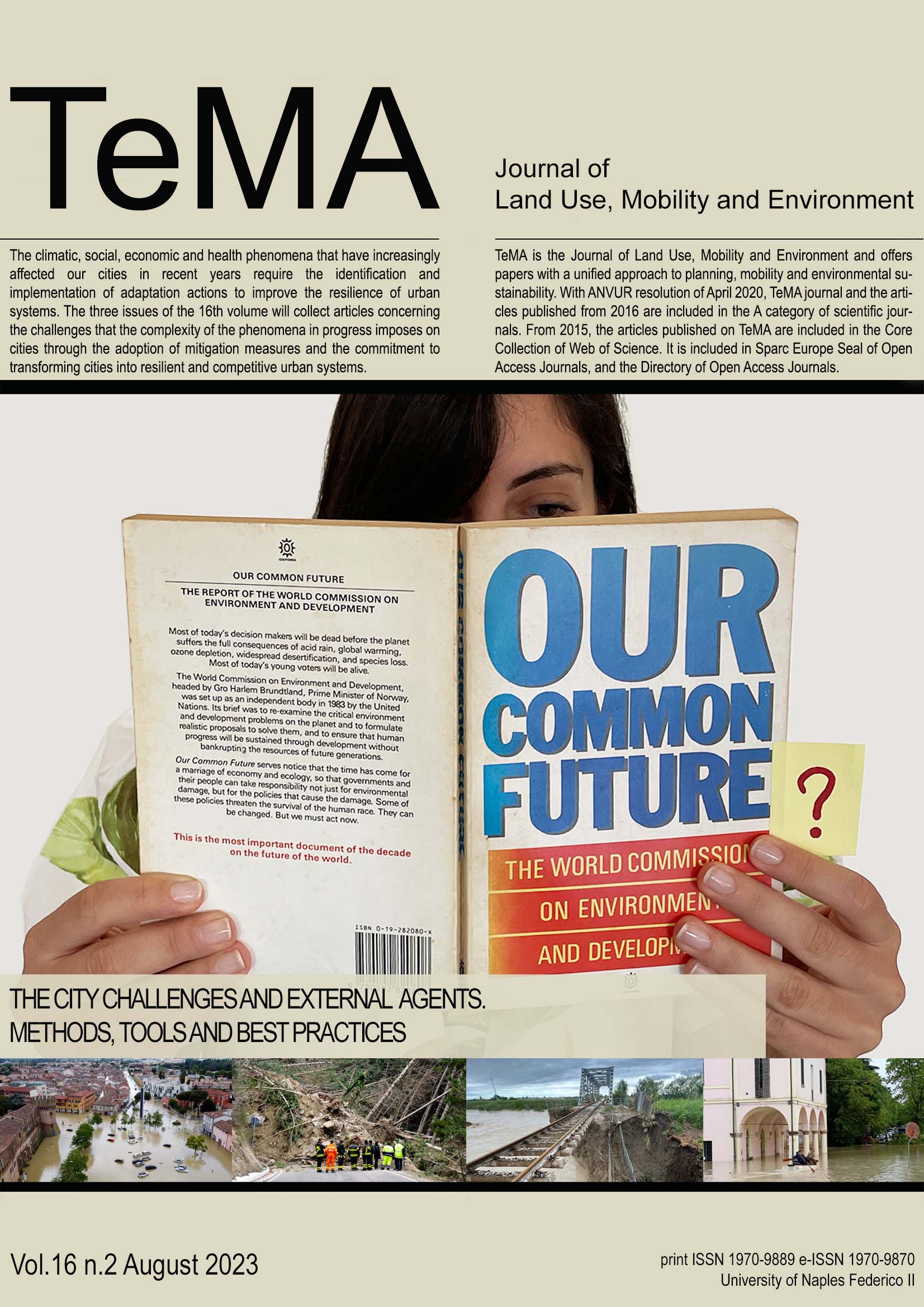A platform to optimize urban deliveries with e-vans
Dealing with vehicles range and batteries recharge
Abstract
The paper reports the results of a research targeted to develop a Decision Support System (DSS) for planning and operation of urban deliveries carried out with electric vans.
The research was included within the 2019-21 Research Program for the Electric System, coordinated by the Italian Ministry for the Ecological Transition, and has been performed by ENEA, the Italian Agency for Energy, New Technologies and Sustainable Development, and “La Sapienza” University of Rome.
The new DSS is based on meta-heuristics algorithms capable to manage a generic set of goods to be delivered by means of a generic fleet of electric vans, with the objective of minimizing the overall cost of the daily operation. The algorithm considers all the physical constraints, including vehicles batteries capacity. It is assumed that fast recharges can be performed during the delivery tours.
For the real-time operation, a monitoring system of the vehicle fleet, road network and recharge stations is assumed, based on IoT technologies, in order to detect possible unexpected events and manage them in the best way, according to the available resources time by time.
The paper describes the DSS general architecture, the optimization algorithms and the recovery procedures and shows results for two testbeds.
Downloads
References
ANFIA - Associazione Nazionale Filiera Industria Automobilistica (2022). Rapporto trimestrale gennaio-marzo 2022 - Focus UE-EFTA-UK VLC, Autocarri e autobus.
Capgemini Research Institute (2018). The last-mile delivery challenge. Available at: https://www.capgemini.com/wp-content/uploads/2019/01/Report-Digital-%E2%80%93-Last-Mile-Delivery-Challenge1.pdf
Carrese, F., Colombaroni, C., & Fusco, G. (2021). Accessibility analysis for urban freight transport with electric vehicles. Transportation Research Procedia, 52, 3-10. https://doi.org/10.1016/j.trpro.2021.01.002
Clarke, G., & Wright, J. W. (1964). Scheduling of vehicles from a central depot to a number of delivery points. Operations research, 12(4), 568-581. https://doi.org/10.1287/opre.12.4.568
Colombaroni, C., Mohammadi M., & Rahmanifar, G. (2020). Makespan minimizing on multiple travel salesman problem with a learning effect of visiting time. WSEAS Transactions on Systems and Control,15, 508-526. https://doi.org/10.37394/23203.2020.15.5
Dantzig, G. B., & Ramser, J. H. (1959). The truck dispatching problem. Management science, 6(1), 80-91. https://doi.org/10.1287/mnsc.6.1.80
Delponte, I. (2021). Sustainable Urban Mobility Plan and the electric mobility challenge. First results of the planning process in Genoa (IT). TeMA-Journal of Land Use, Mobility and Environment, 14(3), 303-318. https://doi.org/10.6093/1970-9870/8070
EEA - European Energy Agency (2019). The first and last mile - the key to sustainable urban transport. Available at: https://www.eea.europa.eu/publications/the-first-and-last-mile
Erdelić, T., & Carić, T. (2019). A survey on the electric vehicle routing problem: variants and solution approaches. Journal of Advanced Transportation, 2019. https://doi.org/10.1155/2019/5075671
Ford (2020). Ford commercial solutions. Available at: https://www.commercialsolutions.ford.com/
Gargiulo, C., Maternini, G., Tiboni, M., & Tira, M. (2022). New scenarios for safe mobility in urban areas. TeMA-Journal of Land Use, Mobility and Environment, Special Issue 1.2022, 3-5. https://doi.org/10.6093/1970-9870/8916
Gonzalez-Feliu, J., & Morana, J. (2010). Are City Logistics Solutions Sustainable? The Case of Cityporto. TeMA - Journal of Land Use, Mobility and Environment, 3(2), 55-64. https://doi.org/10.6092/1970-9870/167
Gillett, B. E., & Miller, L. R. (1974). A heuristic algorithm for the vehicle-dispatch problem. Operations research, 22(2), 340-349. https://doi.org/10.1287/opre.22.2.340
Hashemi-Amiri, O., Mohammadi, M., Rahmanifar, G., Hajiaghaei-Keshteli, M., Fusco, G., & Colombaroni, C. (2023). An allocation-routing optimization model for integrated solid waste management. Expert Systems with Applications, 227, 120364. https://doi.org/10.1016/j.eswa.2023.120364
IVECO (2020). Nuovo Iveco Daily Hi-Matic. Connettivita e servizi. Available at: https://www.iveco.com/italy/prodotti/pages/nuovo-iveco-daily-hi-matic-connettivita-e-servizi.aspx#connettivita
Kirkpatrick, S., & Swendsen, R. H. (1985). Statistical mechanics and disordered systems. Communications of the ACM, 28(4), 363-373. https://doi.org/10.1145/3341.3344
Logistica Management (2019). Verizon e Iveco insieme nella gestione flotte. Available at: https://www.logisticamanagement.it/it/articles/20190430/verizon_e_iveco_insieme_nella_gestione_flotte
NISSAN (2020). NissanConnect, il sistema di infotainment per accedere facilmente a tutte le funzioni di cui hai bisogno durante la guida. Available at: https://www.nissan.it/servizi/nissan-connect-in-auto.html
Paganoni, S. (2020). Vodafone e Geotab insieme per la gestione digitale delle flotte aziendal. Available at: https://www.ilsole24ore.com/art/vodafone-e-geotab-insieme-la-gestione-digitale-flotte-aziendali-ACT13eLB?refresh_ce=1
Rahmanifar, G., Mohammadi, M., Sherafat, A., Hajiaghaei-Keshteli, M., Fusco, G., & Colombaroni, C. (2023). Heuristic approaches to address vehicle routing problem in the Iot-based waste management system. Expert Systems with Applications, 220, 119708. https://doi.org/10.1016/j.eswa.2023.119708
Staricco, L., & Brovarone, E. V. (2016). The spatial dimension of cycle logistics. TeMA-Journal of Land Use, Mobility and Environment, 9(2), 173-190. https://doi.org/10.6092/1970-9870/3919
Struttura Tecnica di Missione del MIMS (2022). Investimenti, Programmi e Innovazioni per lo sviluppo della mobilità sostenibile nelle città metropolitane.
Vidal, T., Crainic, T. G., Gendreau, M., & Prins, C. (2013). Heuristics for multi-attribute vehicle routing problems: A survey and synthesis. European Journal of Operational Research, 231(1), 1-21. https://doi.org/10.1016/j.ejor.2013.02.053
WEF - World Economic Forum (2020). Future of the last mile ecosystem. Available at: https://www.weforum.org/reports/the-future-of-the-last-mile-ecosystem/
Zuccotti, S., & Konstantinopoulou, L. (2010). CityLog. Towards New Solutions for Urban Freight Distribution. TeMA - Journal of Land Use, Mobility and Environment, 3(2), 29-36. https://doi.org/10.6092/1970-9870/164
Copyright (c) 2023 TeMA - Journal of Land Use, Mobility and Environment

This work is licensed under a Creative Commons Attribution 4.0 International License.
Authors who publish in this journal agree to the following:
1. Authors retain the rights to their work and give in to the journal the right of first publication of the work simultaneously licensed under a Creative Commons License - Attribution that allows others to share the work indicating the authorship and the initial publication in this journal.
2. Authors can adhere to other agreements of non-exclusive license for the distribution of the published version of the work (ex. To deposit it in an institutional repository or to publish it in a monography), provided to indicate that the document was first published in this journal.
3. Authors can distribute their work online (ex. In institutional repositories or in their website) prior to and during the submission process, as it can lead to productive exchanges and it can increase the quotations of the published work (See The Effect of Open Access)

